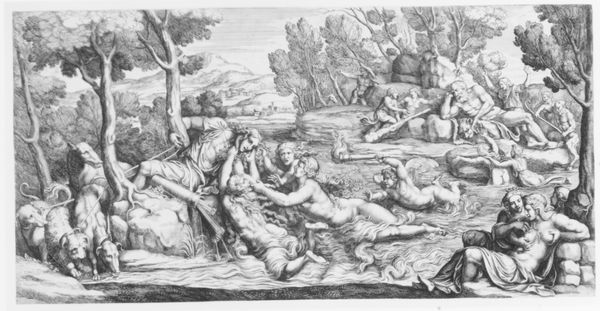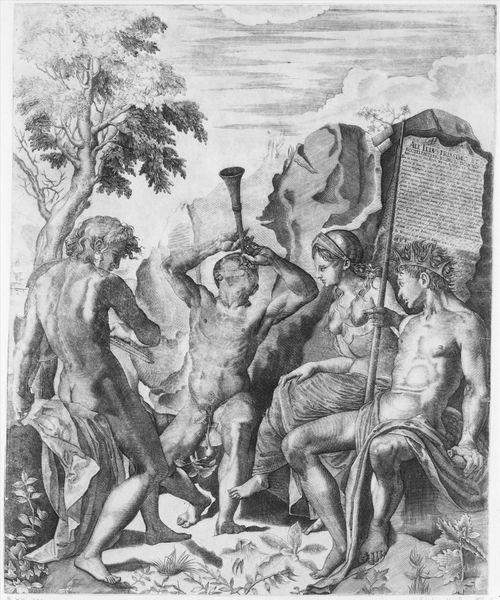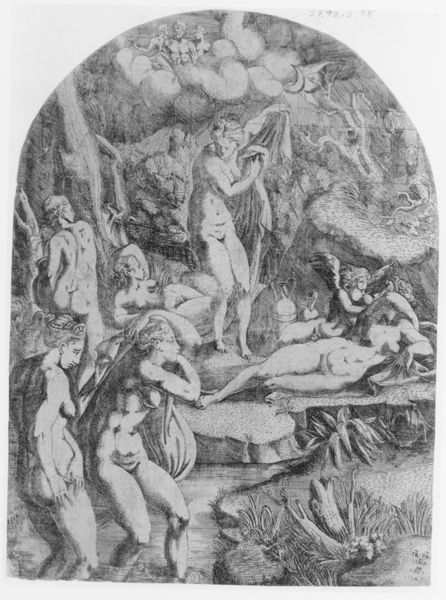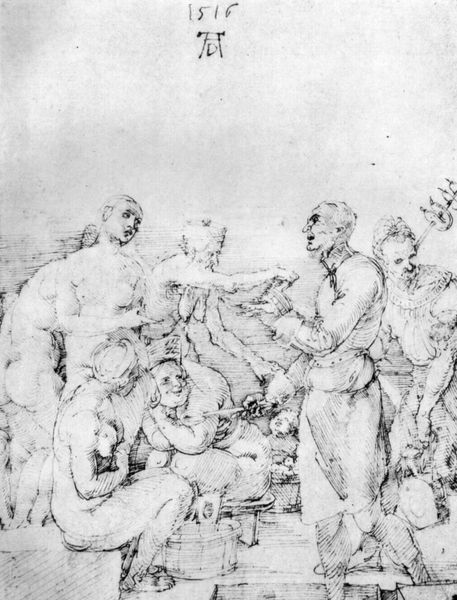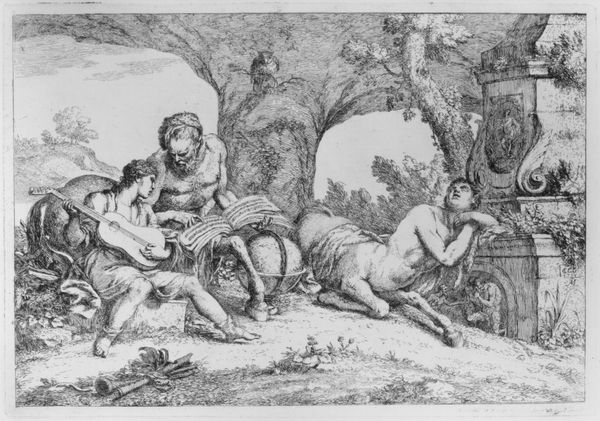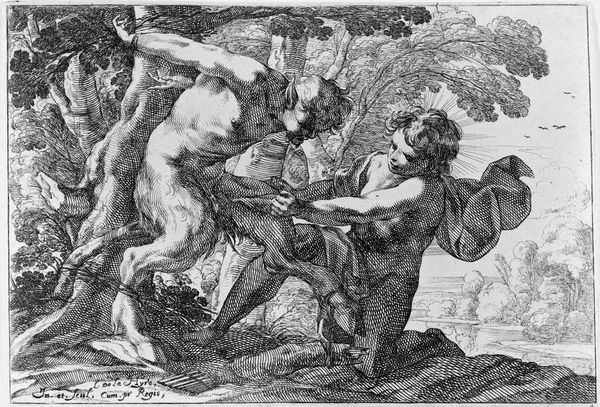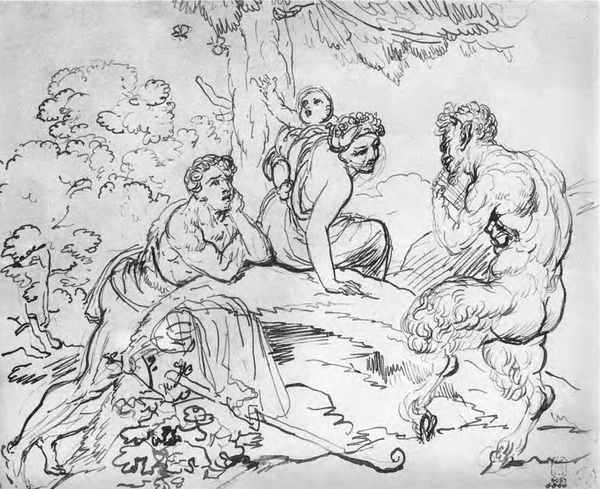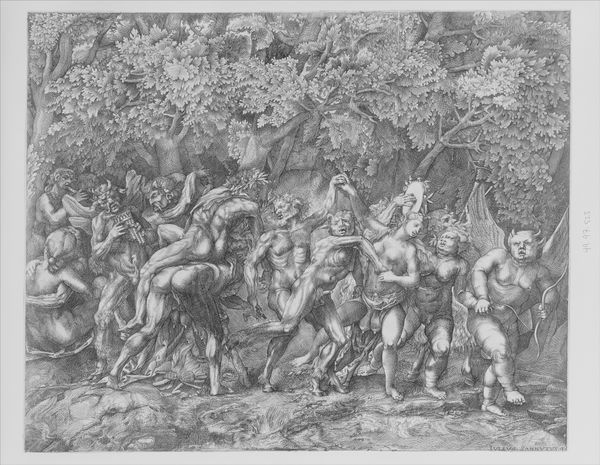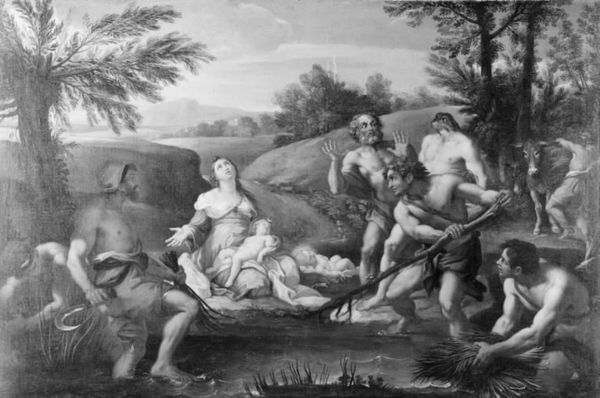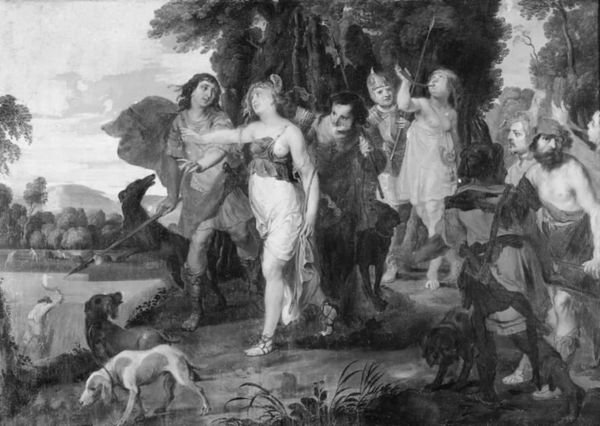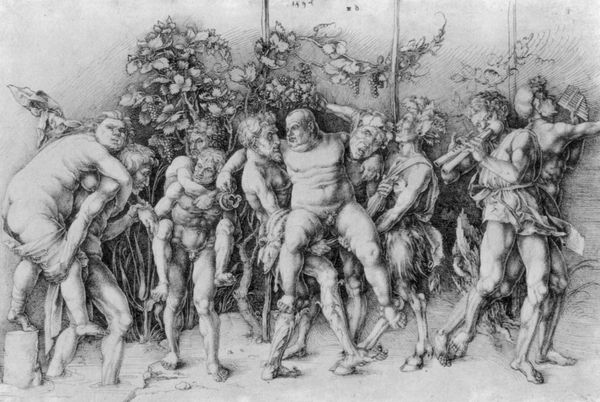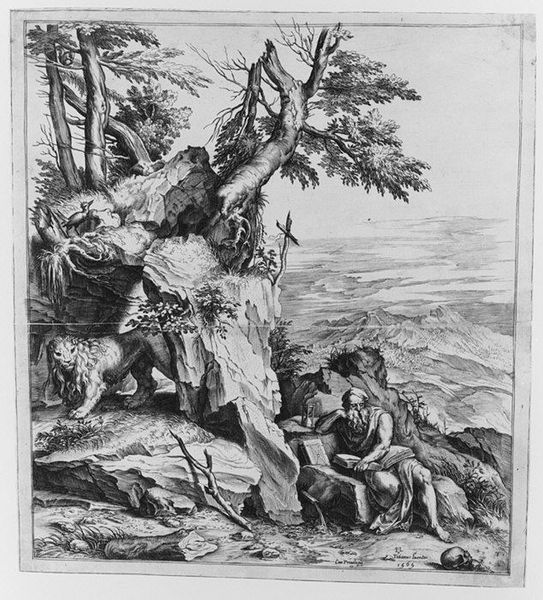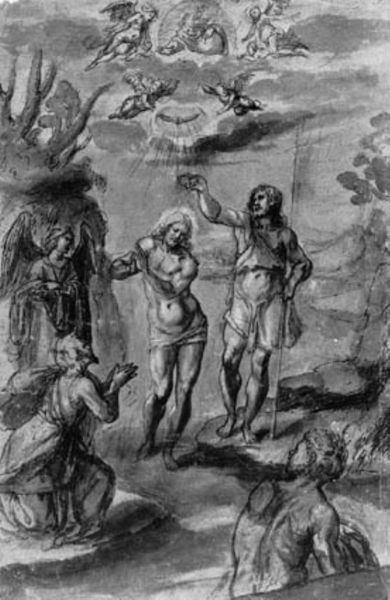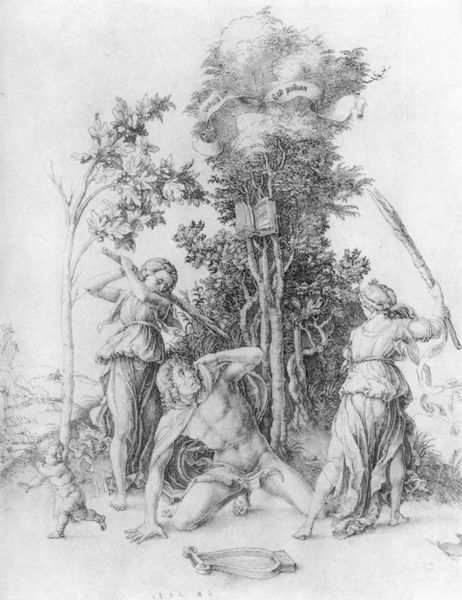
drawing, print, engraving
#
drawing
#
allegory
# print
#
pencil sketch
#
greek-and-roman-art
#
charcoal drawing
#
figuration
#
11_renaissance
#
pencil drawing
#
line
#
northern-renaissance
#
charcoal
#
graphite
#
engraving
Copyright: Public domain
Albrecht Dürer made this engraving, "Fighting Seekentauren," around 1505, using a technique that demands both physical strength and incredible finesse. Engraving is an intaglio process, meaning the image is cut into a surface – in this case, a copper plate. Dürer would have used a tool called a burin to carve lines into the metal, creating grooves that hold ink. The plate is then inked, wiped clean, and pressed onto paper, transferring the image. The density of lines and the cross-hatching create areas of shadow and depth, giving the figures a three-dimensional quality. Notice how Dürer varies the weight of the lines to define the musculature of the sea creatures and centaurs. Each mark is deliberate and controlled. Dürer’s mastery of engraving elevated printmaking from a craft to a fine art. His prints were widely distributed, making art accessible to a broader audience and establishing his reputation across Europe. He was among the first artists to understand the power of reproducible images, influencing the course of art history. By attending to his labor, we can consider the social and political dimensions of his artmaking.
Comments
No comments
Be the first to comment and join the conversation on the ultimate creative platform.
